
Tinnitus in Elderly: Causes + Strategies for Prevention
A common problem in older adults is tinnitus, which can occur for a variety of reasons. In this case, older adults complain of hearing sounds like wind, whistling, ringing, or buzzing in one or both ears. It is possible that tinnitus in elderly continues continuously or that it manifests itself at different times.
Being aware of the causes of tinnitus in the elderly helps the geriatric nurse at home or someone who cares for the elderly to take better care of the elderly. In some cases, tinnitus may resolve on its own, while in other cases, treatment may be needed. Tinnitus can be caused by a variety of reasons, including ear infections, hearing loss, stress, changes in pressure inside the ear, sinusitis, and tinnitus. Your doctor may perform a series of tests to determine the cause of the tinnitus.
Do you sometimes experience tinnitus? How many times a week do you experience this condition? Are you aware of the complications of tinnitus? Do you know what methods are available to treat ringing in the ears? In the continuation of this article from the Human Health Mag website, join us as we examine this condition and explain the important causes of tinnitus in elderly, the factors that aggravate this disease, methods of diagnosis, treatment, and strategies for its prevention.
What is Tinnitus?
Tinnitus is one of the types of ear diseases, which means hearing a sound or ringing in the ears. Tinnitus is a common health problem that affects between 10 to 30 percent of the population, and approximately 3 to 4 percent of them visit a doctor at least once in their lives. Tinnitus is not a disease in itself; rather, it is a symptom of a chronic disorder, such as age-related hearing loss, hearing damage, or circulatory system disorders. This problem may worsen with age.
Elderly people usually feel tinnitus more at night and when it is quiet, sometimes tinnitus causes a decrease in hearing or causes headaches and dizziness. Hearing loss in elderly people is the third most common problem in the elderly after arthritis and high blood pressure, which often causes inattention, depression, and low self-confidence in those people. Tinnitus is likely to occur in humans at all ages, and in older people, the frequency of tinnitus also increases with age.
Different Types of Tinnitus
- External tinnitus: which is heard by others and the doctor in addition to the patient himself, is more often caused by neurological or vascular disorders, tumors of the head, brain or neck, and some parts of the ear.
- Internal tinnitus: This type of tinnitus is felt only by the patient, and in more than 60% of cases, the cause cannot be found.
- Pulsatile tinnitus: This tinnitus is felt as a pulsating and rhythmic sound like a heartbeat. This type of tinnitus usually occurs after exercise or intense physical activity.
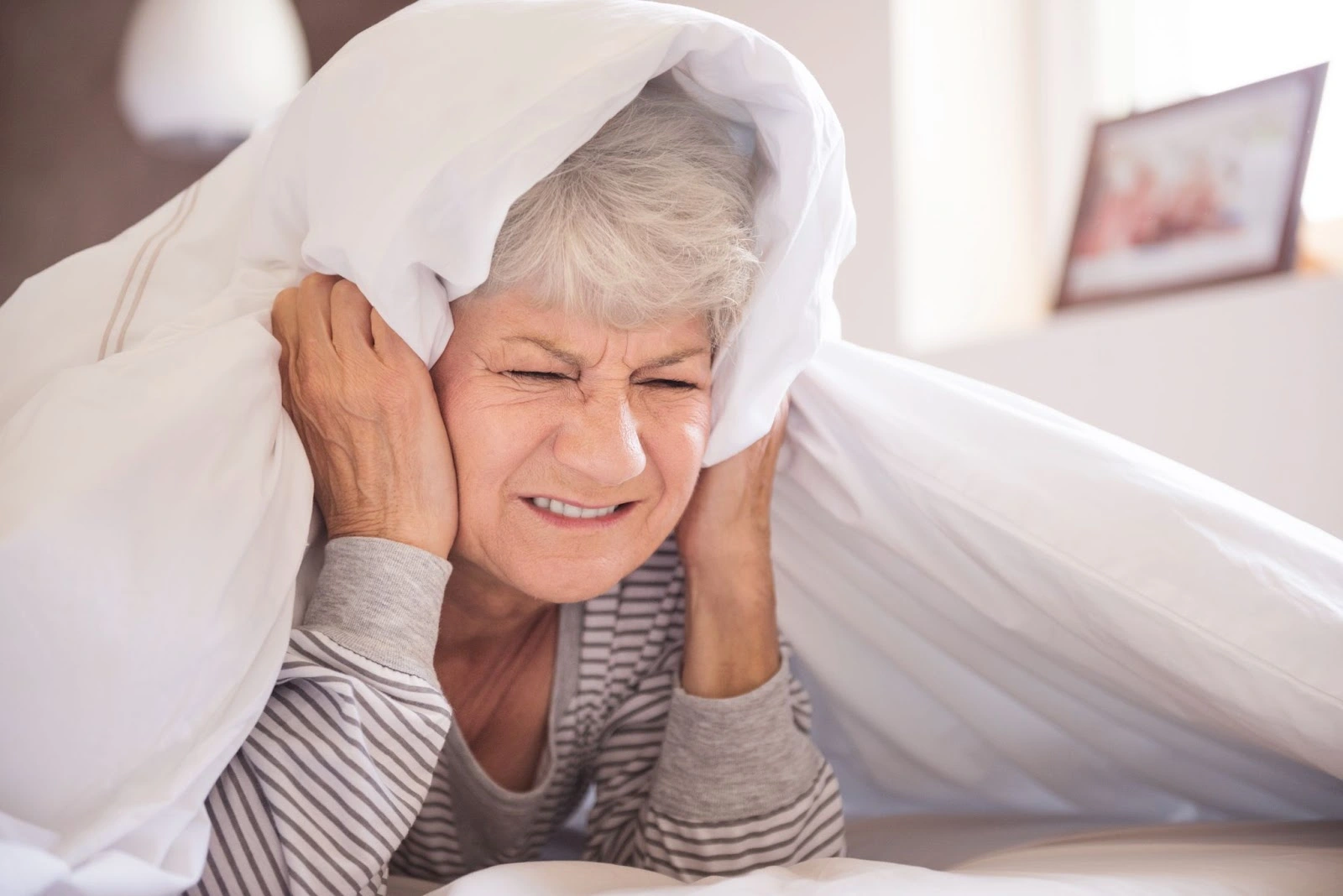
What Causes Tinnitus in Elderly?
While tinnitus can be mild and intermittent, it can sometimes be severe and constant. The cause of tinnitus in elderly population may vary from person to person, and sometimes multiple factors may come together to cause tinnitus. Tinnitus in seniors can be caused by a variety of reasons. Some of the most common causes of tinnitus in the elderly include:
- Presbycusis in the elderly (Age-related hearing loss), which occurs due to natural changes in the inner ear. People with hearing loss may have to put extra effort into stimulating their auditory nerves, which can cause tinnitus.
- Exposure to loud noises, such as concerts, headphones, and loud vehicle
- Ear infections
- Trauma and situations such as a blow to the head, a blow to the neck, or being at high altitudes can also cause tinnitus.
- Side effects of certain medications, such as some painkillers, antibiotic use among geriatric, and antidepressants like aspirin
- Although rare, a tumor in the ear can also cause tinnitus
- Stress and anxiety are triggers that can cause tinnitus
- TMJ (Temporo Mandibular Joint) problems
- Angular disorders that occur in the spine
- Problems such as high blood pressure and atherosclerosis can affect blood flow to the ear
- Inner ear disorders such as Meniere’s disease in the inner ear cause dizziness, hearing loss and tinnitus
- Excessive accumulation of earwax can put pressure on the eardrum and cause this problem
- Some underlying conditions such as diabetes and heart disease can also indirectly cause this condition
- Nicotine and caffeine consumption causes constriction of blood vessels and leads to tinnitus
- Head and neck injuries may damage the inner ear, auditory nerves, and brain function related to hearing
Tinnitus in the Left Ear
As we mentioned above, tinnitus in the left ear can be caused by many reasons and factors. In tinnitus problems, there is usually no specific factor that determines which ear the ringing occurs in.
Tinnitus in the Right Ear
The problem of tinnitus in the right ear can be caused by many factors and causes, like the problem of tinnitus in the other ear.
Pulsatile Tinnitus in the Elderly
Although you may experience a pulsating sound in your ears at any age, it becomes more common as you get older. Acute tinnitus and somatic tinnitus are among the most common causes of tinnitus that occur with age.

Medications that Can Cause Tinnitus in Elderly
A number of medications can cause or worsen a ringing sound in the ears, such as a whistling sound. In general, high doses of these medications make the problem worse. Often the unwanted noise goes away when you stop taking the medications. Medications known to cause or worsen it include:
- Antibiotics, including polymyxin B, erythromycin, vancomycin, and neomycin
- Anticancer medications including mechlorethamine and vincristine
- Diuretics, such as bumetanide, ethacrynic acid, or furosemide
- The drug quinine, used to treat malaria or other diseases
- Some antidepressants may cause this problem.
- Aspirin in unusually high doses (usually 12 or more per day)
Factors that Aggravate Tinnitus in Older Adults
Some of the most common factors that can aggravate tinnitus in elderly include:
- Stress and anxiety: Relaxation techniques such as deep breathing exercises and meditation can help.
- Excessive fatigue: When the brain is tired, it is less able to filter out unnecessary sounds, which can aggravate tinnitus. Excessive fatigue increases stress and anxiety, which can also worsen tinnitus.
- Lack of sleep: It can increase sensitivity to sounds, which may make this problem more pronounced in the ears.
- Certain foods and drinks: Some of these substances include caffeine, alcohol, salt, sugar and sweets, and fatty and spicy foods.
What fruit is good for tinnitus?
Some fruits are very useful for relieving ear noise, especially foods that are rich in potassium. These fruits include bananas, pears, and tropical fruits such as pineapple, papaya, and mango. Fruits help reduce blood pressure and proper blood circulation in the ears.
What foods are harmful for tinnitus?
People with severe ringing in the ears should avoid eating foods that contain salicylates. Some of these foods include dried fruits, blackberries, cranberries, blueberries, oranges, pineapples, raisins, raspberries, strawberries, and tangerines.
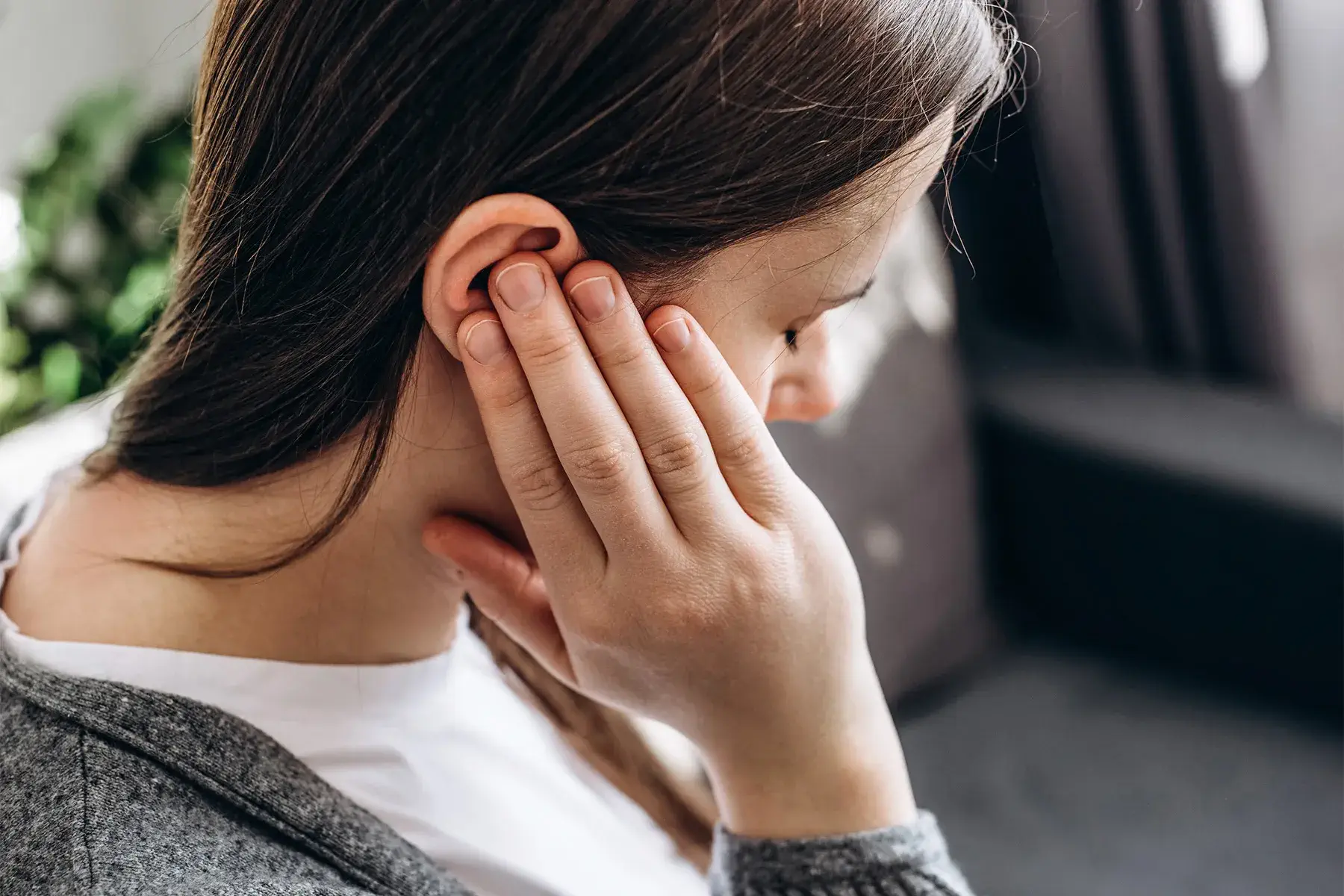
Risk factors and Complications of Tinnitus in Elderly
Tinnitus can happen to anyone. But there are some factors that increase the risk of developing it, including:
- People whose jobs require them to hear loud noises every day, such as construction workers, musicians, and soldiers.
- Age: The number of active nerve fibers in the ear decreases over time.
- Gender: This condition is more common in men than women.
- Harms of smoking in the elderly and alcohol use: This condition is more common in smokers. Alcohol consumption also increases the likelihood of developing this problem.
- Some health challenges: Obesity, high blood pressure, cardiovascular problems, and a history of arthritis.
Many people who face this problem acutely are likely to experience the following complications:
- Fatigue
- Stress
- Sleep problems
- Difficulty concentrating
- Memory problems
- Depression
- Anxiety and irritability
- Headaches
- Work and personal life problems
How to Diagnosing Tinnitus in the Elderly
First, we recommend that you visit an otolaryngologist for a specialized examination and accurate diagnosis of this disease. Diagnosis of this condition involves several different methods that help doctors identify the root cause of this problem. Some common diagnostic methods for diagnosing tinnitus in elderly include:
- Physical examination: The doctor examines the ears using an otoscope to identify any blockage or infection.
- Hearing test (audiometry): This test involves listening to different sounds through headphones and reacting to them. This test helps the audiologist assess the extent and type of hearing loss.
- Imaging: In some cases, the doctor may use MRI or CT scan imaging to identify structural problems, such as tumors or vascular problems.
- Electrophysiology tests: These tests measure electrical activity in the ear and brain and detect nerve problems.
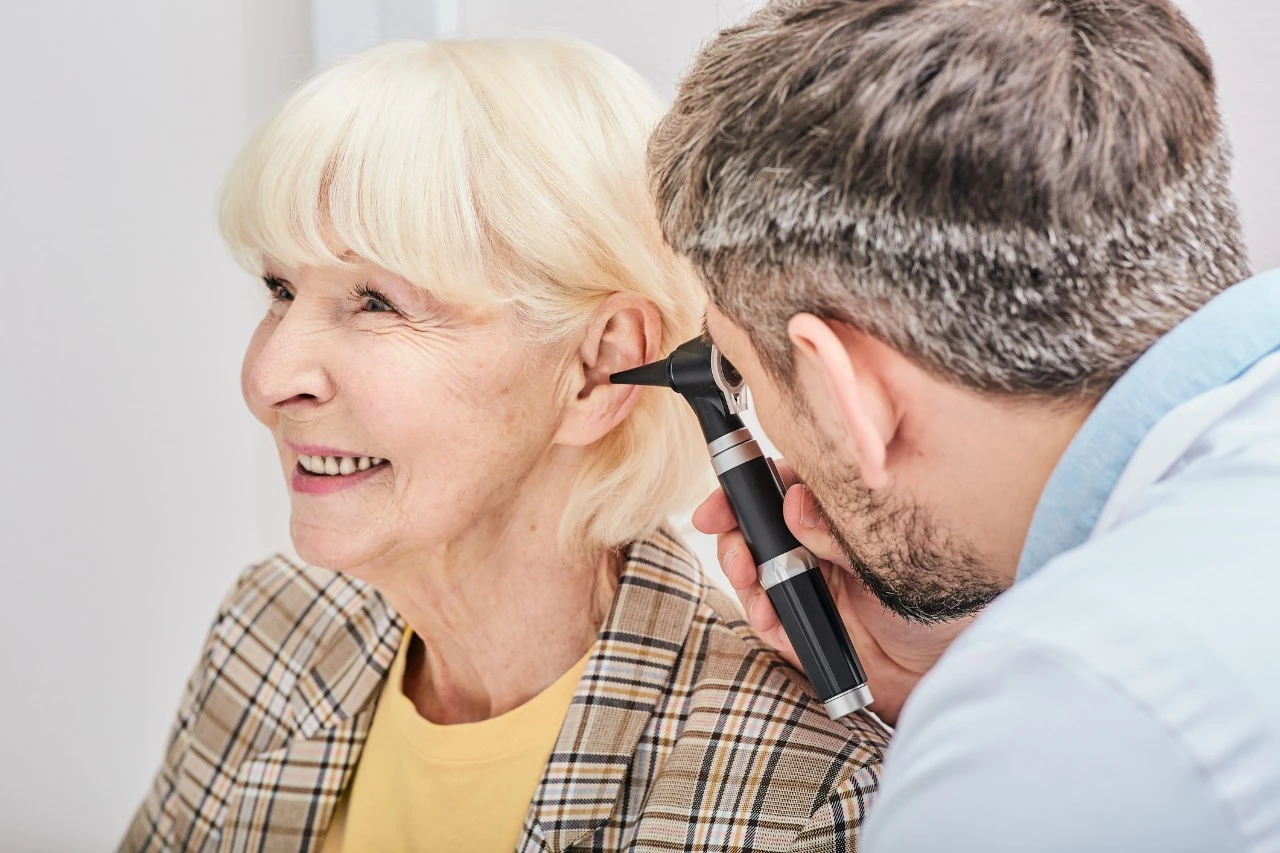
How Is Tinnitus (Ringing in Ears) in Elderly Treated?
Treatment for tinnitus depends on the cause and can vary depending on the cause and severity. If an underlying condition is the cause, steps should be taken to treat that condition. Your doctor may recommend any of the following to treat tinnitus in the elderly.
Medical Treatments for Tinnitus in Elderly
Which medicine is best for tinnitus? Medication management for elderly can help reduce tinnitus. For example, some antidepressants or tranquilizers used to treat anxiety and depression may reduce tinnitus. Doctors may prescribe medications such as antibiotics for ear infections, anti-anxiety medications, or antidepressants to reduce tinnitus.
What pill should we take for tinnitus?
There is no cure for tinnitus. But some medications can help reduce the symptoms or complications of this problem. The best antibiotics for ear infections and ear treatment medications include: Nortriptyline tablets, Ginkgo tidi tablets, Antihistamines, Alprazolam, Betahistine medication, Ginkgogel tablets, Nicotinic acid intake.
What is the treatment of tinnitus in traditional medicine?
One of the herbs that traditional medicine believes is useful for treating ear problems is the medicinal herb Ginkgo biloba. However, large-scale studies have not proven this. Also, herbs and food supplements that contain vitamin B12 are recommended. Note that none of these treatment options are supported by science. For this reason, be sure to consult a doctor before using them.
Non-medical Treatments for Tinnitus in the Elderly
- Sound therapy: Using a variety of background and soothing sounds such as the sound of rain, sea waves, or soothing music to reduce discomfort and tinnitus
- Psychotherapy: Changing mental and emotional reactions to tinnitus in elderly and managing anxiety in seniors and reducing stress associated with it
- Hearing aids: Using hearing aids, especially in people with hearing loss
- Massage therapy: Massaging the neck, shoulders, and head to improve blood flow and reduce muscle tension, which may lead to a decrease in tinnitus
- Acupuncture: By stimulating specific points on the body using thin needles and improving blood flow and reducing inflammation in areas related to hearing
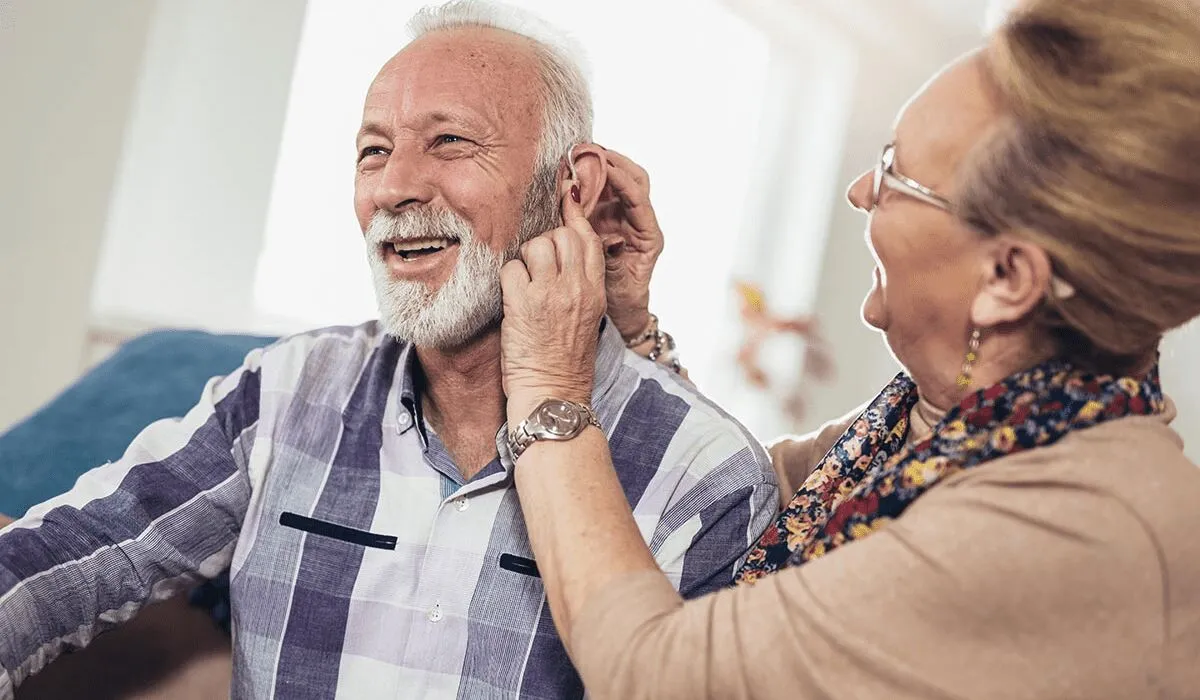
Home Remedies
Some home remedies include stress reduction for elderly techniques and relaxation exercises such as yoga, meditation, and deep breathing exercises, improving sleep quality, and avoiding noisy environments, which can help reduce tinnitus. As we said, tinnitus may be caused by nutritional factors such as high blood pressure or diabetes. Therefore, making dietary changes and following a healthy diet can help reduce tinnitus.
Surgery in Special Cases
Surgery to treat tinnitus is usually considered a last resort and is only performed in special cases where the cause of tinnitus in the elderly is known and treatable. For example, in rare cases where tinnitus is caused by a tumor or cyst or other physical abnormality, surgery to remove the tumor or cyst may be necessary.
A cochlear implant is also a treatment option for people who have tinnitus due to hearing loss. The implant can reduce tinnitus by directly stimulating the auditory nerves.
Physiotherapy Techniques
Recent studies on tinnitus in elderly show that physiotherapy techniques and methods are also successful in this area. Although tinnitus is usually related to a problem in the ear, in some cases, spinal problems can also cause tinnitus. This condition may be caused by spinal problems in the neck area. Spinal problems, especially in the neck area, can affect the muscles and nerves around the spine, causing tinnitus.
Spinal problems, such as cervical osteoarthritis or herniated discs, can also cause the spinal canal to narrow, which can lead to nerve damage. This can cause nerve impulses and tinnitus. People with tinnitus should be evaluated by a physical therapist after determining the cause and seeking appropriate treatment options with their doctor to determine whether physical therapy support for tinnitus is necessary.
In cases of tinnitus caused by spinal or jaw problems, after evaluation by a physical therapist specializing in this field, methods such as physical therapy methods for tinnitus can be used for this problem.
Treatment of Tinnitus with Laser
Low-level laser therapy is an effective treatment for subjective tinnitus in some cases. The experience of treatment with the tinnitus treatment device has shown that if the laser treatment continues for a month, it has significant effects.
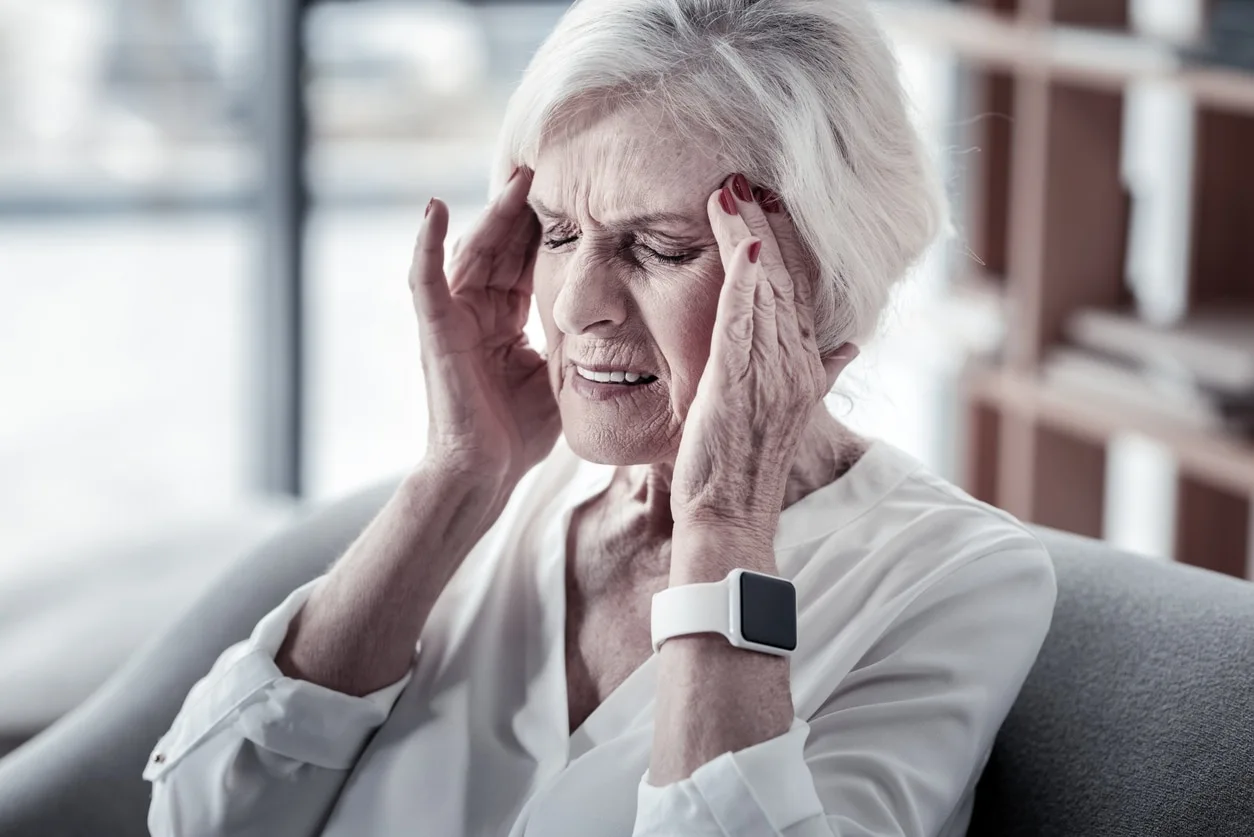
Is It Possible to Prevent Tinnitus?
Unfortunately, preventing this condition is not easy and in most cases it cannot be prevented. However, taking some precautions can help prevent it:
- Use hearing protection: Avoid loud environments as much as possible. Loud noise damages the ear nerves and causes ringing in the ears and hearing loss. If you have to be in loud places because of your job, be sure to use hearing protection.
- Turn down the music volume: Do not listen to music at high volume when using headphones. This can damage your ears.
- Take care of your cardiovascular health: Tinnitus and noise in the ears are sometimes related to obesity and blood vessel disorders. Regular exercise and a healthy diet can help keep your blood vessels healthy.
- Limit alcohol, caffeine, and nicotine: Excessive consumption of these substances can impair blood flow and cause problems in the ears.
Also, conducting periodic hearing examinations, having a healthy lifestyle, and using ear cleaners correctly are among the important things in preventing this disease.
Concluding Remarks
In this article, we discussed all the necessary information about the causes, aggravating factors, methods of diagnosis, treatment and prevention of tinnitus disorder in elderly. Early diagnosis by the family, caregivers or elderly nurse and timely treatment of this disease is very important and can have positive effects on its prevention.
Tinnitus can disrupt sleep, reduce concentration, and increase stress. So, although tinnitus is an annoying disorder, it is completely controllable and with appropriate treatment, a normal life can be returned. In some cases, tinnitus can be accompanied by hearing loss. Following some recommendations such as using ear protectors, changes in diet, consulting an otolaryngologist and regular exercise can also help in this regard.
Loved this article? Or do you have suggestions to make it even better? Please share your thoughts in the comments below, and let’s work together to build better content!

Frequently Asked Questions
Is tinnitus a sign of an ear infection?
Sometimes a middle ear infection presents with tinnitus. The infection is likely to be accompanied by pain and fluid drainage from the ear. In such cases, the doctor will prescribe medication to treat the infection and may perform ear irrigation.
Is tinnitus in elderly a symptom of hearing loss?
One of the symptoms of hearing loss is tinnitus. Hearing loss may be due to exposure to loud noise or due to aging. In any case, there is a possibility of tinnitus in the ears and it is better to see a doctor for a more detailed examination.
What vitamin deficiency causes tinnitus and what vitamin is good for tinnitus?
Deficiency of two types of vitamins D and B12 can contribute to the creation of sound in the ears. Vitamin B12 helps to create myelin, which is the protective covering of the nerves. Its deficiency causes irritation and dysfunction of the ear nerves. Vitamin D also contributes to bone health, and its deficiency can put pressure on the bones of the inner ear.
When is tinnitus in elderly dangerous?
Tinnitus is rarely associated with a serious medical problem and is usually not severe enough to interfere with daily life. However, some people find that it affects their mood, sleep, or concentration. In severe cases, tinnitus can lead to anxiety or depression.
